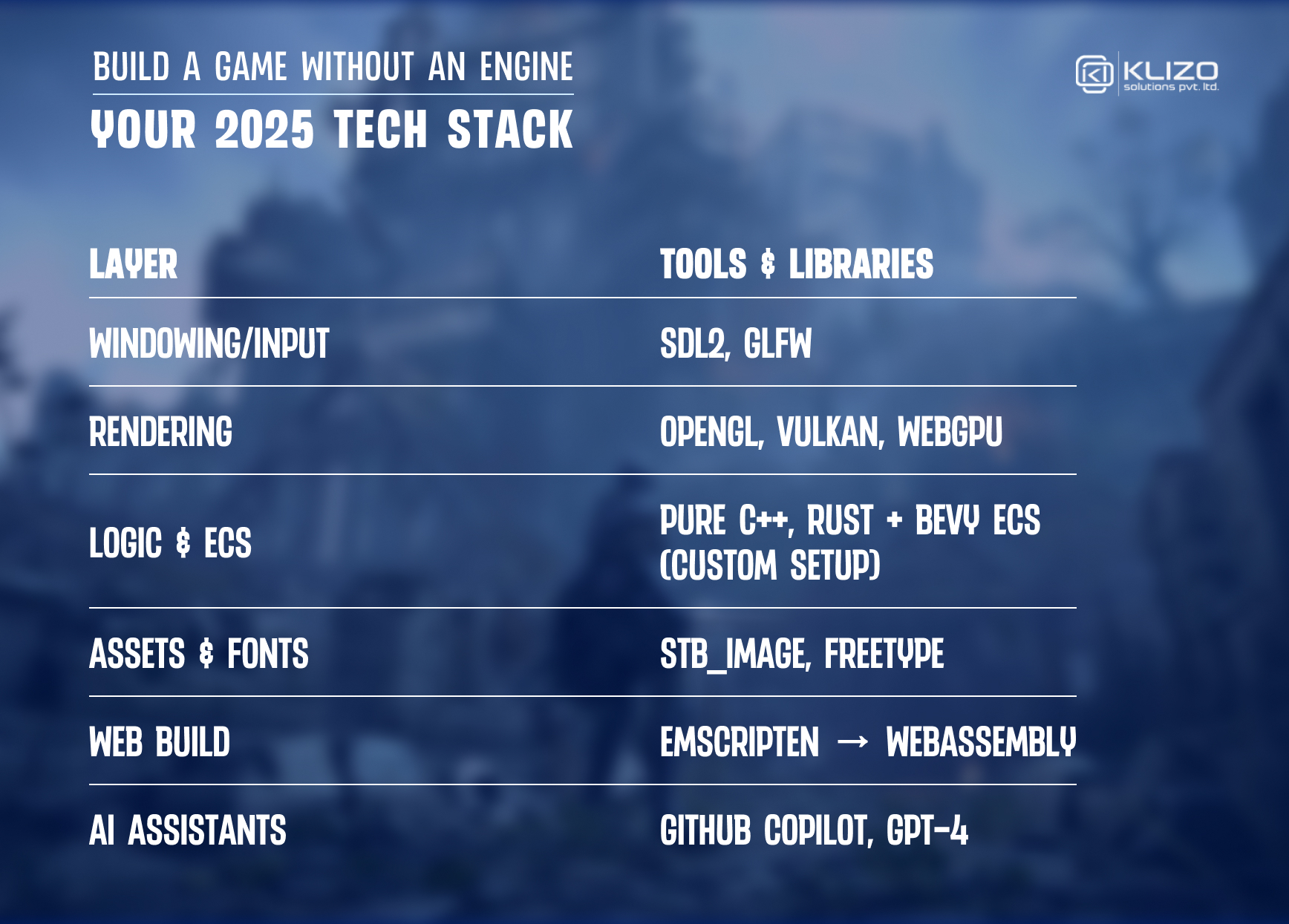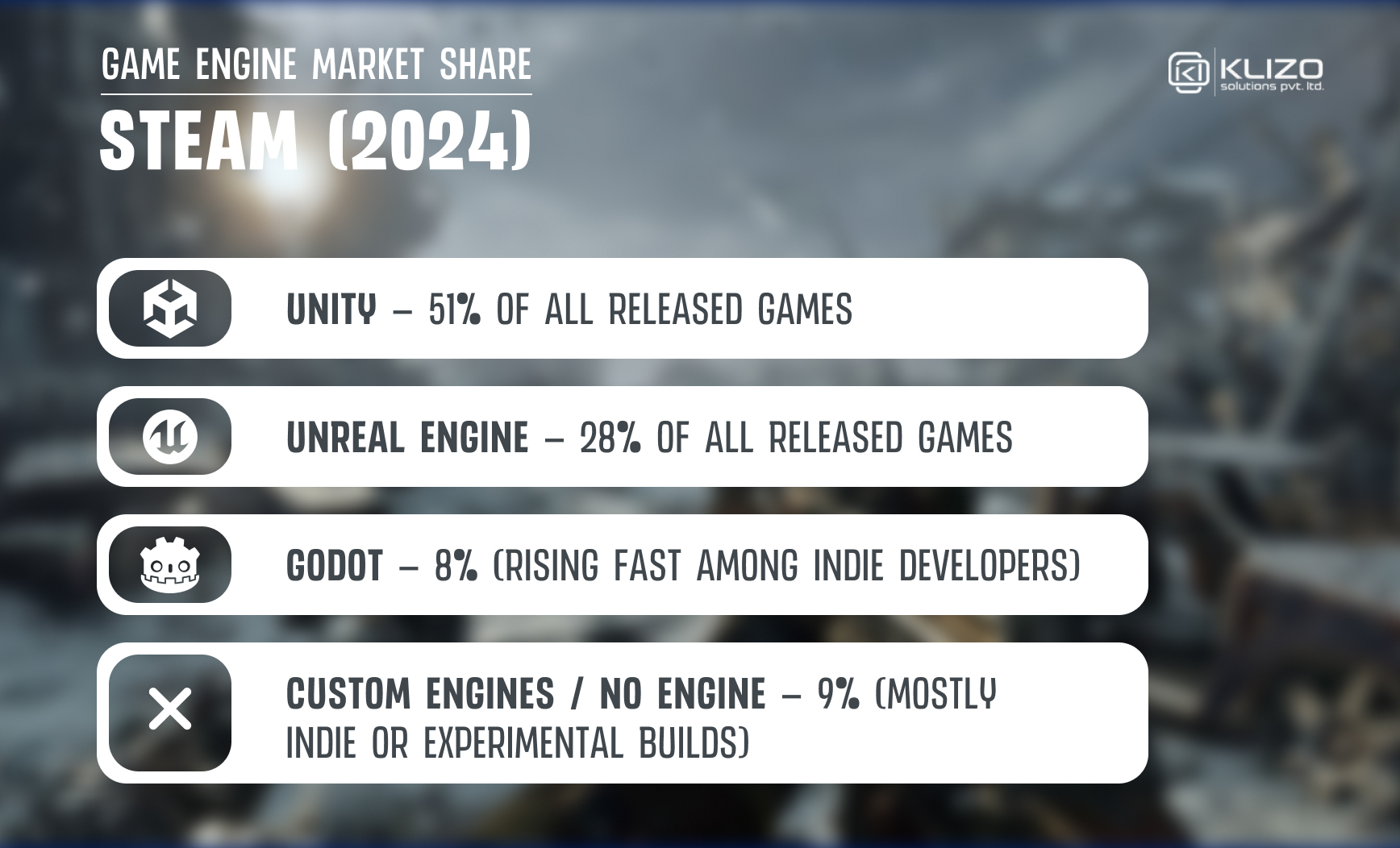


In a game dev ecosystem increasingly dominated by plug-and-play engines and AI-powered design tools, a curious trend is re-emerging. Some developers in 2025 are choosing to build video games without using any traditional game engine. Not Unity. Not Unreal. Not even Godot.
Why? Because going engine-less offers a level of control, understanding, and creative freedom that’s hard to match, even in a post-AI world.
Let’s dive into the why, how, and who of making games from scratch in 2025, and why this hardcore approach might still have a place in the future of game development.
Before we get into the advantages of going engine-free, let’s acknowledge the current state of the industry:
Despite their popularity, game engines come with limitations—licensing costs, overhead, vendor lock-in, and black-box behaviors. For some devs, the trade-offs are just not worth it.

When you skip the engine, you get access to the bones and muscles of your game architecture. This means:
This is why engine-less development is often recommended for those who want to deeply learn game systems.
“If you want to understand how a car drives, build the engine first.” — Noel Berry
No engine means no bloat. You include only what you need:
This approach is common in browser-based games and performance-sensitive applications.
One major motivator post-2023 is the freedom from runtime fees and license changes. After Unity’s pricing backlash in late 2023, many developers began re-evaluating their dependency on proprietary platforms.
When you write your own framework or rely on low-level libraries, you own your code and your distribution pipeline.
Going engine-less doesn’t mean starting with a blank file in Notepad. Many modern devs use these tools:
In short, you’re piecing together your own lightweight engine based on your exact needs.
Engine-less development isn’t for every type of game. But it excels in areas like:
Games built for niche or custom hardware

Interestingly, 2025’s AI landscape makes going engine-less more manageable than ever:
You’re still doing the hard work, but you’ve got smarter tools by your side.
Making a game without an engine is like building a house with your bare hands. It’s slower. It’s harder. But it’s yours from the ground up.
For some devs, especially solo creators and technical artists, that journey of craftsmanship is more rewarding than shipping another Unity-based title.
If you’re learning game development or want to escape the constraints of third-party engines, going raw can be a powerful path. Just start small: build Pong, then Breakout, then a simple 2D platformer. Don’t aim for a 3D MMORPG on day one.
Engine-less game development is not dead. In fact, in a world where everyone is building faster, cheaper, and lazier, it might just be the boldest move a dev can make.
Previous article
Joey Ricard
Klizo Solutions was founded by Joseph Ricard, a serial entrepreneur from America who has spent over ten years working in India, developing innovative tech solutions, building good teams, and admirable processes. And today, he has a team of over 50 super-talented people with him and various high-level technologies developed in multiple frameworks to his credit.

Subscribe to our newsletter to get the latest tech updates.